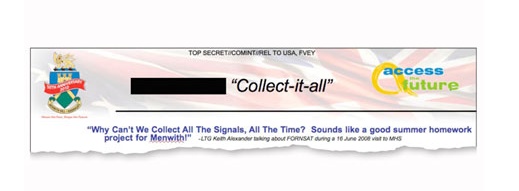According to the latest set of documents from Edward Snowden that were released by the Guardian today, the Britsh spy agency GCHQ has been tapping into 46 transatlantic fiber-optic cables that carry data between Europe and North America to collect and store email messages, Facebook posts and other information for at least the last 18 months. Though the program, code-named “Tempora,” has supposedly been built up over the last five years.
Given what we’ve heard about the NSA and its close relationship to Britain’s GCHQ, this may not come as a total surprise, and, as the Guardian reports, GCHQ is sharing its information with the NSA.
“It’s not just a U.S. problem. The U.K. has a huge dog in this fight,” Snowden told the Guardian. “They [GCHQ] are worse than the U.S.”
According to this report, about 300 GCHQ and 250 NSA analysts were working on analyzing this data by last May and an unnamed U.K. official argues that they get to work with even more information than the NSA because the program actually “produces larger amounts of metadata than NSA.” By last year, the program was handling 600 million “telephone events” each day and was processing data from 46 of the 200 fibre-optic cables it tapped into.
As with all of these program, the legality of the operation is in doubt, though the 2000 Regulation of Investigatory Powers Act (Ripa), the report says, requires the GCHQ to obtain a warrant for the tapping of “defined targets.”
Paying Companies For Cooperation
The report also alleges that a number of companies have been “paid for the cost of their co-operation,” but unlike the NSA PRISM leaks, the names of these companies remain under wraps and the companies themselves are forbidden to reveal the existence of this program. They were, however, “obliged” to participate in the program, though it’s obviously not clear if they put up a fight or not.
Sadly, the Guardian did not post the actual documents, so for the time being, we have to take the reporter’s word as to the extent of the program.
